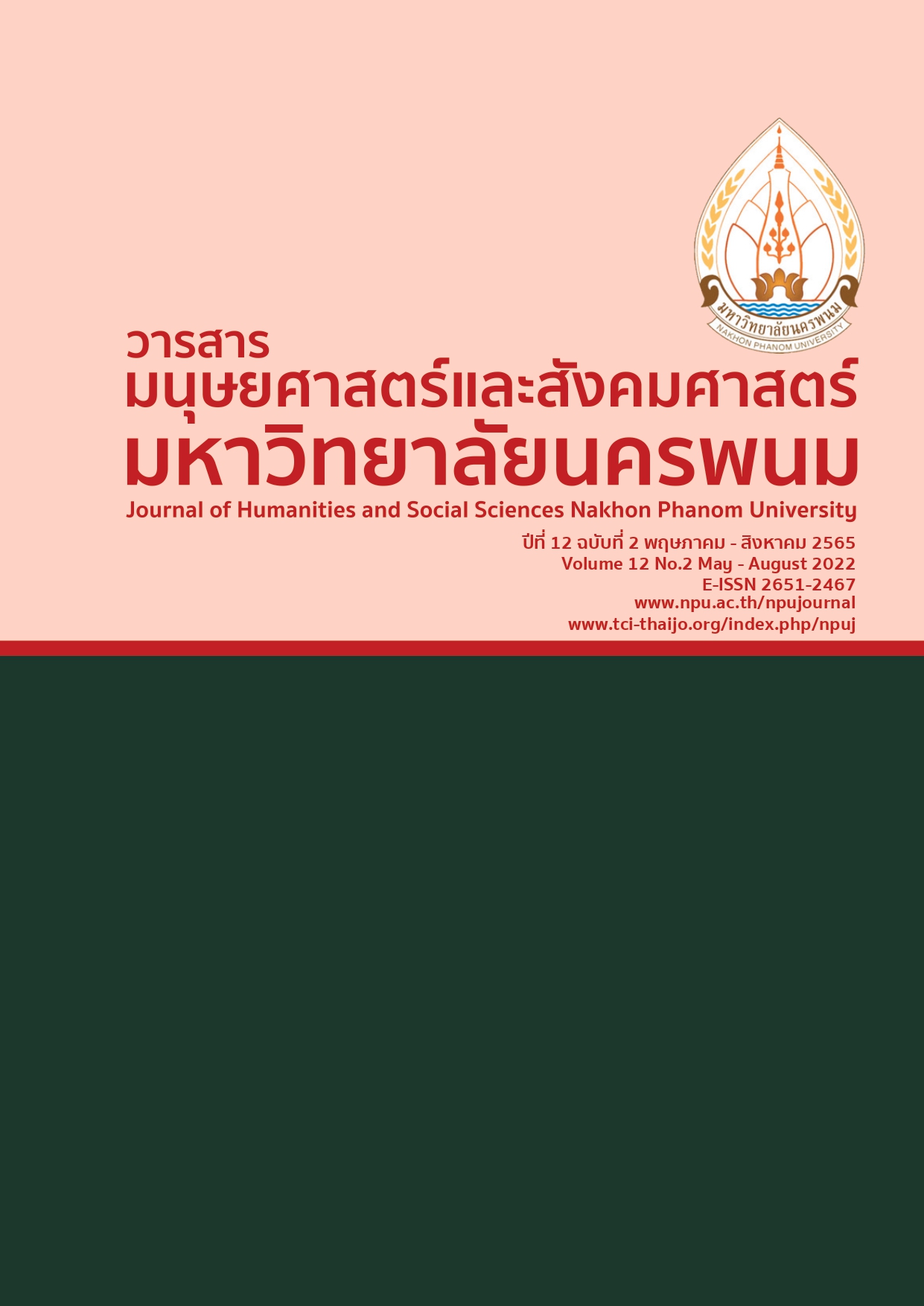Developing the Coaching Instructional Model in Multimedia Subject for Enhancing Knowledge Based Learning Community of Undergraduate Students
Main Article Content
Abstract
This research is aimed to created and developed the coaching instructional model in multimedia subject for enhancing knowledge-based learning community of Undergraduate students, to study students’ academic achievement and the efficiency of coaching instructional model in multimedia subject using specified criteria of 80/80 and to assess the satisfaction on coaching instructional model in multimedia subject. The target group was 5 lecturers in undergraduate curriculum which was purposively selected from Department of Information Technology. The sample consisted of 14 undergraduate students which was randomized from the 2nd and 3rd years who enrolled for multimedia using multi-stage cluster sampling. The data was collected from documentary review and knowledge sharing by brainstorming to create and develop instructional model, to study the efficiency of testing using achievement test, and to assess the satisfaction on coaching instructional model using satisfaction questionnaire. The percentage, mean, standard deviation, and t-test were employed to an analyze the data. The result findings are as follows: 1) The elements of coaching instructional model include contents, process, output, and feedback. 2) The efficiency of coaching instructional model was found at the specified standard; the efficiency of process was at the criteria of 81.38 and efficiency of product was at the criteria of 90.53, which met the criteria of 81.38/90.53, for the students’ achievement found that the posttest score was significantly higher than the pretest score at the .01 level. 3) The overall of students’ satisfaction on instructional model was at a high level which the advantage affected on the undergraduate students becoming the knowledge-based learning community with a higher academic achievement.
Article Details

This work is licensed under a Creative Commons Attribution-NonCommercial-NoDerivatives 4.0 International License.
References
[2] White Wawit Saeng Alangkarn. (2018). bot thī hā kunčhǣ sip prakān sō̜n ngān hai kœ̄t phon. Retrieved
from https://www.ocsc.go.th/sites/default/files/document/ocsc-2017-eb12.pdf [in Thai]
[3] Pornchai Jedaman. et al. (2015). kānphatthanā kānsưksā phāitai krō̜p prathēt Thai 4.0 sū satawat thī
yīsipʻet. Journal of Industrial Education. 16(2). Page 199-206. [in Thai]
[4] San Thambamrung. (1984). laksūt læ kānbō̜rihān laksūt. Bangkok. Religious. [in Thai]
[5] Prasart Isaraprida. (2006). sārattha čhittawitthayā kānsưksā. Textbook Project, Mahasarakham University.
383 Page. [in Thai]
[6] Anchalee Dhammakulkun. (2010). khwāmrū bư̄angton kīeokap kān nithēt kānsưksā. Retrieved from
http://panchalee.wordpress.com/2009/03/30/supervision. [in Thai]
[7] Muanfun Chommanee and Siripaarn Suwanmonkha. (2014). kān wikhro̜ krabūankān chīnæ khō̜ng khrū
læ phon thī kœ̄t kap phū rīan : phahu kō̜ranī sưksā. Electronic Journal of Education. 9(2).
Page 489-499. [in Thai]
[8] Wararat Pathumcharoenwattana (2019). kānsưksā nō̜k rabop rōngrīan samrap dek læ yaowachon dō̜i ʻōkāt
: ʻēkkasān khamsō̜n rāiwichā 2750283. Faculty of Education, Chulalongkorn University. [in Thai]
[9] Somchai Chanyaphaibun. (2012). rūpbǣp kānphatthanā kānprakan khunnaphāp phāinai sathān sưksā
sangkat samnakngān khēt phư̄nthī kānsưksā matthayommasưksā khēt yīsipkāo. Doctor of
Philosophy Program for thesis. Rajabhat ubonratchathani university. Ubonratchathani province.
[in Thai]
[10] Chaiyong Phromwong. (2013). kānthotsō̜p prasitthiphāp sư̄ rư̄ chut kānsō̜n. Silpakorn Journal of
Research Science, 5(1), Page. 7-19. [in Thai]
[11] Wimonrat Sunthornrot. (2016). kānphatthanā khwāmsāmāt dān kāntham wičhai nai chan rīan
khō̜ng nisit sākhā wichā phāsā Thai chan pī thī sām dōi chai krabūankān Coaching læ Mentoring.
Journal of Education Mahasarakham University. 10(4). Page 165-176. [in Thai]


